What is gastric cancer?
This is the development of cancerous cells in the abdomen or stomach. Most of the time gastric cancer goes unnoticed until it develops and the symptoms worsen.
Stomach cancer begins in the inner lining of the abdomen and once cancerous cells are developed in the stomach, it can cause changes to your DNA. Your body’s DNA gets impacted by the new addition of cells and this tends to change your healthy cells’ responsibilities and functions.
As the cancerous cells take over the stomach, they kill the healthy cells, creating a tumour. Once a tumour is formed, there is an excess of cancerous cells in the body that kills the healthy cells, which end up destroying healthy tissues in the body, which can eventually spread around the body.
This is a rare type of cancer which generally develops during the latter stages of life between the ages of 60 and 80.
Gastric cancer symptoms
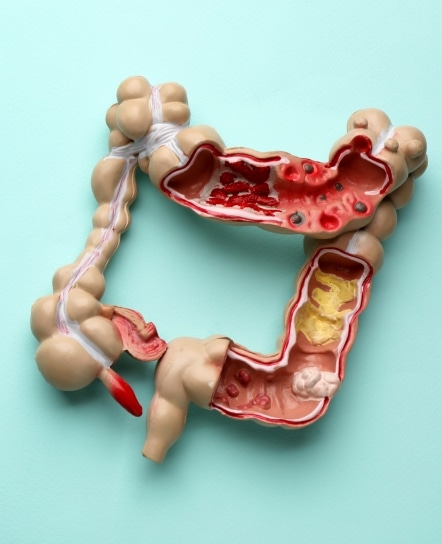
Stomach cancer cells can develop in any part of the stomach and these cells are likely to grow and multiply, spreading the cancer. Patients are most likely to be asymptomatic until the cancer fully develops and worsens in the stomach.
General gastric cancer symptoms are:
Pain and aches in the abdomen
Burning sensation in the stomach
Swelling in the abdomen
Heartburn or issues of indigestion
Feeling stuffed and full after consuming small quantities
Feeling nauseous and pukish, generally passed with blood
Loss in appetite
Unexplained weight loss
Feeling weak, tired, and fatigued
Passing of dark stools
The causes of gastric cancer
There is no distinct cause for stomach cancer to develop, but there are various factors that can affect the risks posed to stomach cancer, including age, dietary habits, lifestyle decisions, recreational activities, physical state, and family background.
The following may increase the potential of gastric cancer:
Being over 60 years of age
Having a family background with gastric cancer
Smoking and drinking
Contracting an infection from Helicobacter pylori
Consuming many smoked, pickled and salty foods without consuming many fruits, vegetables, and grains
Being low on red blood cells (also known as pernicious anaemia)
Suffering from serious and chronic gastritis
Having ulcers
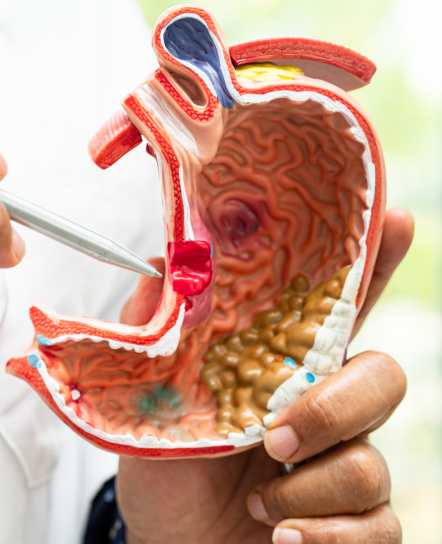
Types of stomach cancer
There are different types of stomach cancer, and each depends on where in the stomach it is contracted and where it began. There are 4 types of stomach cancer:
Adenocarcinoma stomach cancer
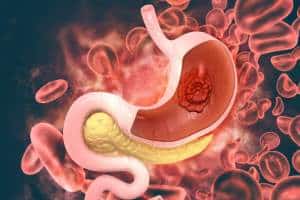
The most common type of cancer and initiates in cells that produce mucus
Gastrointestinal stromal tumours (GIST)
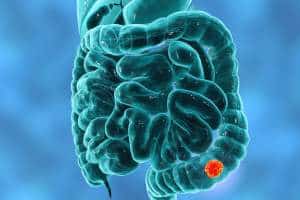
Cancerous cells are found in the wall of the stomach and other parts of the digestive organs
Carcinoid tumours
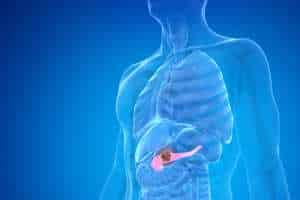
Functioning of cancerous cells in the neuroendocrine cells which are responsible for making hormones
Lymphoma
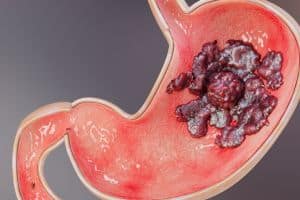
This is when there are cancerous cells found in the cells of the immune system
Tests that can diagnose stomach cancer
There are many tests that can be conducted to detect stomach cancer and your gastroenterologist will likely advise you to proceed with them. These tests that may detect stomach cancer are:
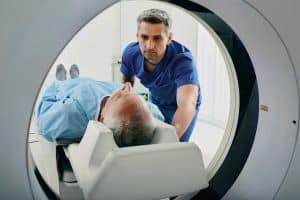
CT scan

Blood tests
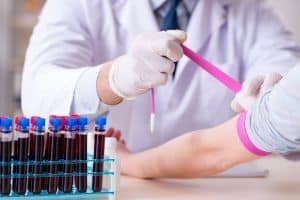
Ultrasound scan
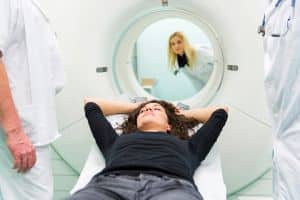
PET scan
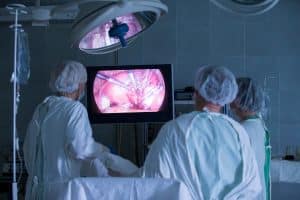
Laparoscopy

Bone scan
Treatment and prevention of stomach cancer
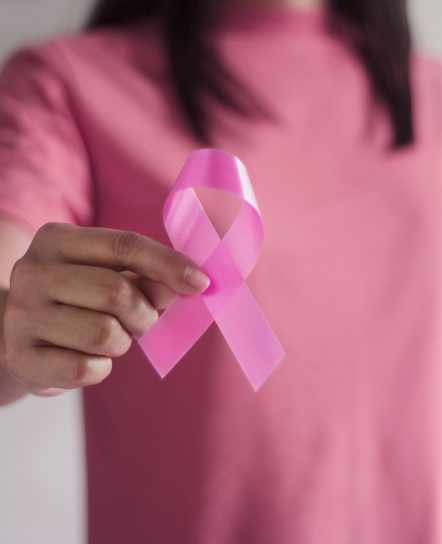
The majority of the time, the treatment for stomach cancer is surgery, which is known as a gastrectomy. This surgery removes the total or part of your stomach which has cancerous cells. This depends on the spread of the cancerous cells within the body.
If there is a major or sizable tumour in the stomach, chemotherapy may be advised before surgery to reduce the size of the tumour. It may also be done after surgery to prevent the recurrence of the cancer.
In some cases of gastrointestinal conditions like gastric cancer, you may be introduced to palliative care, which aims to improve the quality of life and end suffering; this is not only to aid cancer but other symptoms as well. To lower the risk of stomach cancer, you’ll be advised to make certain changes to your diet and lifestyle.
Some preventive methods taken to fight stomach cancer are
Consuming fruits and vegetables

The inclusion of fruits and vegetables in your diet promotes a balanced and healthy way of living. It is important to reduce the consumption of salty, pickled, and smoked foods.
Avoiding smoking and drinking

Smoking and drinking can cause significant threats to the development of cancerous cells in the body and that is why it is encouraged by specialists to stop this addictive habit.
Keeping your healthcare provider informed if stomach cancer runs in your family

If stomach cancer is hereditary, keep your doctor informed during diagnosis, so you can get some screening and tests done to confirm if you have it too.
FAQs
Treatment is likely to be more effective and responsive when it is dealt with at its early stages. The moment you notice a change in your body’s behaviour, it is best to contact a general practitioner and get a confirmed diagnosis. This way, you can take preventive measures before it worsens.
Foods which have vitamin C and high levels of flavonoids, such as oranges, lemons, grapefruit, and tangerines help fight stomach cancer. It is best to avoid half-cooked food or raw fish, foods that contain raw eggs, unpasteurized dairy products, and unwashed fruits or vegetables.
Speak to a specialist if you notice gastric cancer symptoms
Gastric cancer is the sixth most common cancer. Therefore, it’s imperative to get treatment as soon as possible. When it comes to getting treatment, however, it depends on where the cancer first initiated, your health condition, your lifestyle, and your preferred way of getting treatment.
Dr. Suhirdan Vivekanandarajah is a highly experienced and educated gastroenterology and hepatology specialist based in Sydney, Australia. He’s trained in various areas of gastroenterology and has been known to provide his patients with the best possible support and treatment for their medical needs.
If you’re concerned about your gut health, book a consultation with Dr. Suhirdan today.
